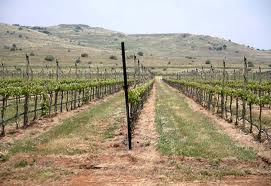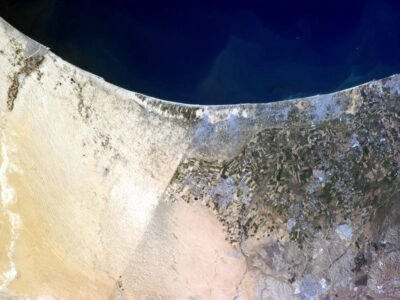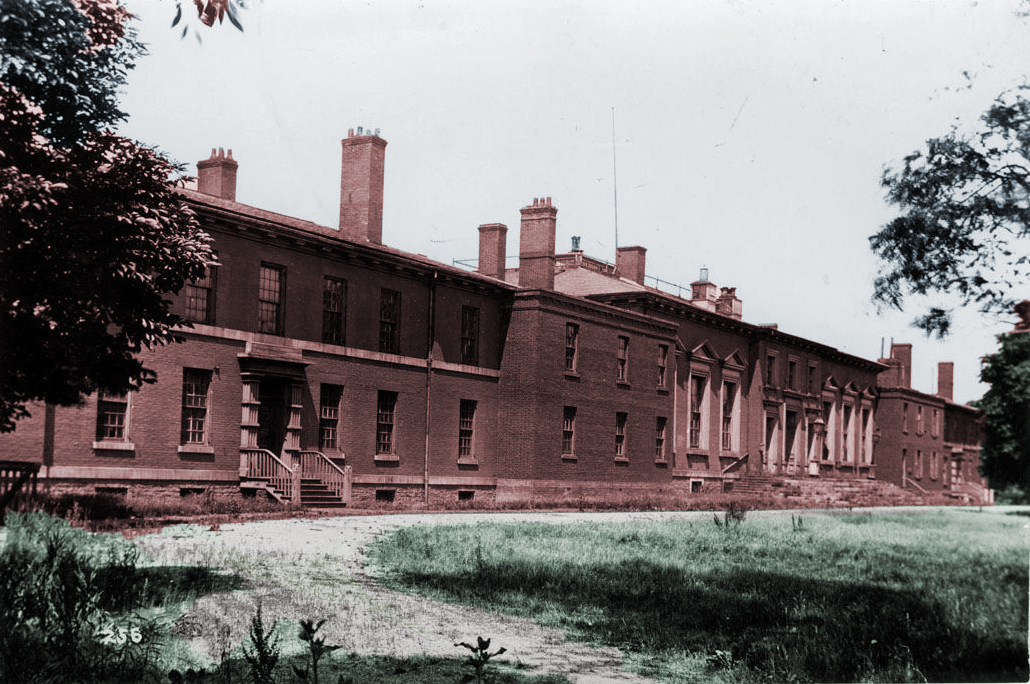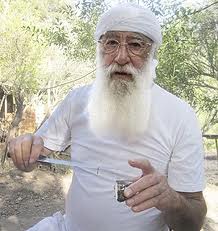 Shai Zeltzer, wearing a long white beard and white apron, brings a sampling of white goats’ cheese to our table at his goat farm in Sataf in the Judean hills, a few miles outside Jerusalem.
Shai Zeltzer, wearing a long white beard and white apron, brings a sampling of white goats’ cheese to our table at his goat farm in Sataf in the Judean hills, a few miles outside Jerusalem.
Many Israelis regularly make the drive through the region’s winding hills to buy Zeltzer’s cheeses, which have won acclaim in Israel and Europe.
As some members of our party begin tasting his wares, Zeltzer tells us about the special breed of goats he uses on his farm and the various bacterial cultures that give the cheese its epicurean taste. Having received a graduate degree in wild-plant ecology from Hebrew University, the 57-year-old Israeli native collects bacterial strains the way other people collect stamps, coins and baseball cards.
He moved here after the 1973 war with a herd of goats he had imported from America. “Slowly, we started to make cheese. Nobody knew about making cheese from goats’ milk then. Only Arabs used to raise goats, but they didn’t really care about them. Goats for them were only a symbol of wealth. It wasn’t the production, it was only the prestige.”
Zeltzer, who has gone on long treks in search of suitable mating partners for his flock, recounts the history of his distinctive “Anglo-Nubian” goats that are daily taken to graze on the nearby hills. The breed started 4,000 years ago in Central Africa, he says, and was exported to Bengal Bay, India, from which it spread throughout Asia.
“In Syria, they called it the Damascus goat. The mark of the goat is the long ears. And it spread through North Africa, where it was called the Nubian goat.”
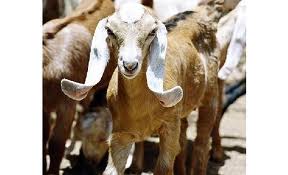 Two hundred years ago, the British zoo acquired some of the goats, and some were taken from England to British Columbia by settlers who had begun describing them as Anglo-Nubian. Zeltzer has gone to North America numerous times in search of kids by which he may “renew the blood.”
Two hundred years ago, the British zoo acquired some of the goats, and some were taken from England to British Columbia by settlers who had begun describing them as Anglo-Nubian. Zeltzer has gone to North America numerous times in search of kids by which he may “renew the blood.”
His flock includes about 150 mothers who produce the milk. “To milk about 150 goats takes about 1-1/2 to two hours,” he says. “It’s very hard work.” The procedure is done twice a day.
Connoisseurs from around the world visit Zeltzer’s farm to procure his cheeses, which are mostly unavailable in local shops and which he does not ship. He purposely keeps production low to maintain a high standard of quality. His farm is part of a growing cottage industry of local fine food production in Israel.
Children especially enjoy visiting the goats in their outdoor pens. The goats, too, seem to display a friendly curiousity towards humans. There is also a nature reserve in the area.
The ancient agricultural village of Sataf is several kilometres south of the Hadassah Medical Centre. Visitors to Zeltzer’s farm may notice the large hatbox-shaped Kennedy Memorial visible on the crest of a nearby hill, a testament to the enduring friendship between the United States and Israel.
* * *
Domaine du Castel Winery
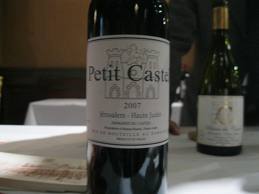
 Seventeen kilometres west of Jerusalem is Ramat Raziel, home of the Domaine du Castel Winery, which produces about 100,000 bottles of fine wine each year from grapes grown on 13 hectares of mountainous land. At an average of 700 metres high, the terrain and climate are ideal for grapes, as is the limestone and terra rosa ground.
Seventeen kilometres west of Jerusalem is Ramat Raziel, home of the Domaine du Castel Winery, which produces about 100,000 bottles of fine wine each year from grapes grown on 13 hectares of mountainous land. At an average of 700 metres high, the terrain and climate are ideal for grapes, as is the limestone and terra rosa ground.
Since producing its first 50 cases of wine only 10 years ago, this boutique winery has received rave reviews in international wine journals for making a bordeaux wine whose quality is considered very good — surprisingly so for the Middle East. The wine sells for about $45 a bottle in the United States but is not yet available in Canada. “We’re working on it,” says a company spokesperson.
On the day I visited, a special crew was dumping crates of grapes into a portable crushing machine to make a kosher wine to be sold in France in three years’ time; as one might expect, the procedure requires specially cleaned machinery and vats, and every step falls under strict religious supervision.
Winemaking is an ancient pastime in Israel. Its modern revival began at the end of the 19th century when Baron Edmund de Rothschild established wineries in Zichron Yakov and in Rishon Lezion. Many Israeli wineries welcome visitors in season; for details, visit the website www.goisrael.com or contact the Israel Government Tourist Office, 416-964-3784. ♦
© 2004

